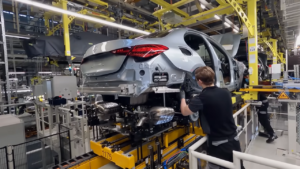
The automotive industry is evolving rapidly, driven by technological advancements, changing consumer preferences, and global economic factors. Here are the most significant trends shaping the industry today:
1. Electric Vehicles (EVs) Dominance
The shift toward electric vehicles is accelerating worldwide. Advances in battery technology, growing charging infrastructure, and government regulations supporting zero-emission transportation are all driving this trend. Consumers are increasingly choosing EVs due to environmental concerns, cost savings, and improved performance.
2. Autonomous Driving
Autonomous driving technology continues to advance, with major automakers and technology companies investing heavily in self-driving systems. The goal is to improve road safety, reduce human error, and offer more convenient transportation options. While fully autonomous vehicles are still in development, significant progress is being made in driver-assistance systems.
3. Supply Chain Challenges
The automotive industry is still recovering from supply chain disruptions, including semiconductor shortages and shipping delays. These challenges have impacted vehicle production, causing delays and increased prices. Manufacturers are working to diversify supply chains and improve resilience to prevent future disruptions.
4. Digitalization and Connectivity
Vehicles are becoming increasingly connected, offering advanced infotainment systems, smart navigation, and integration with mobile devices. Connected car technology enhances the driving experience and allows automakers to offer services such as remote diagnostics, over-the-air updates, and personalized features.
5. Shift Toward Subscription Models
Some automakers are exploring subscription-based models that allow customers to access vehicles on a monthly basis instead of owning them. This model offers flexibility, convenience, and access to new car models without long-term commitments. Subscription services are especially popular among urban consumers and younger buyers.
6. Focus on Sustainability
Sustainability is becoming a key priority across the automotive value chain. Beyond electric vehicles, manufacturers are adopting eco-friendly production practices, using recycled materials, and reducing emissions in manufacturing processes. Sustainability initiatives are also influencing supply chain decisions and product design.
7. Rise of Mobility as a Service (MaaS)
Mobility as a Service (MaaS) is growing rapidly due to urbanization and changing consumer habits. MaaS platforms offer on-demand transportation options such as ridesharing, car-sharing, and micro-mobility solutions. This trend is reshaping the way people move in cities and reducing the need for personal vehicle ownership.
Automotive Industry in USA, Canada, and UK
The automotive industry is strong in the USA, Canada, and the UK, each with unique characteristics and market dynamics:
United States (USA)
The USA remains a global automotive leader with a large manufacturing base and major automakers such as Ford, General Motors, and Tesla. Key features of the US automotive market include:
-
Manufacturing hub with extensive production facilities
-
Growing EV market driven by incentives and infrastructure
-
Strong regulatory environment for safety, emissions, and fuel efficiency
Canada
Canada plays a significant role in the North American automotive industry, especially in Ontario, often called the “Detroit of the North.” Key highlights include:
-
Strong vehicle production and export to the USA
-
Major manufacturing presence from brands like Ford, GM, and Honda
-
Growing focus on EV adoption and manufacturing incentives
-
Trade relations under USMCA, influencing cross-border manufacturing and exports
United Kingdom (UK)
The UK has a long automotive heritage and continues to be a major player in the global market. The UK automotive industry is known for:
-
Luxury brands such as Rolls-Royce, Bentley, and Aston Martin
-
Mass-market manufacturers like Jaguar Land Rover and Mini
-
Innovation in technology, including autonomous driving and connected cars
-
Brexit-related challenges, affecting supply chains and trade
Conclusion
The automotive industry is rapidly transforming due to electrification, automation, digitalization, and changing consumer preferences. While each region faces unique challenges, common themes across the USA, Canada, and the UK include:
-
Growth of electric vehicles
-
Increasing connectivity and digital features
-
Supply chain resilience
-
Sustainability and green manufacturing
-
Emerging mobility services
These trends highlight a dynamic future where the automotive industry continues to innovate and adapt to global changes.